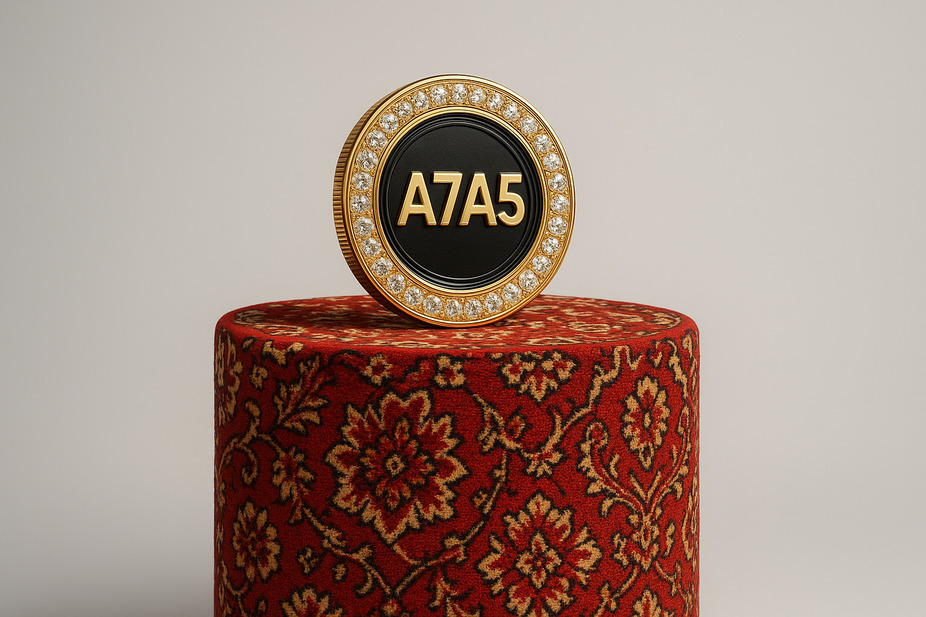Popular cryptos
PayPal USD
Download Ironwallet app and get tool for making transaction without network fee
About PayPal USD
The rise of cryptocurrencies and digital assets has led to increased interest in stablecoins – digital currencies pegged to fiat currencies like the US dollar. One such stablecoin that has gained traction recently is PayPal USD (PYUSD). As a pioneer in online payments, PayPal’s entry into stablecoins could have major implications for adoption and use cases.
What is PayPal USD?
PayPal USD (PYUSD) is a stablecoin developed by PayPal and launched in 2021. It is a digital representation of the US dollar, with each PYUSD token backed 1:1 by actual US dollar reserves held by PayPal. This 1:1 reserve backing provides PYUSD with price stability compared to volatile cryptocurrencies like Bitcoin.
History of PayPal USD
PayPal first announced plans for PYUSD in late 2020 as part of its push into digital currencies. After receiving regulatory approvals, PYUSD was formally launched in June 2021. Initially it was available to select customers in the US, with plans for further international expansion. PayPal also partnered with Paxos Trust Company to develop the stablecoin using Paxos’ blockchain-based platform.
Features of PayPal USD
As a regulated stablecoin, PYUSD provides a level of trust compared to unregulated alternatives like Tether’s USDT. PayPal is subject to regular audits and examinations to ensure sufficient reserves back every PYUSD token in circulation. Users can also take advantage of PayPal’s longstanding reputation for security and digital payments.
In addition, PYUSD enables faster, cheaper transactions compared to traditional ACH bank transfers. As a digital currency, PYUSD offers 24/7 trading and near instant settlement times. There are no conversion fees for holding or transacting in PYUSD within PayPal’s network. Overall, PYUSD combines crypto benefits with the name recognition of a major financial brand.
Obtaining PYUSD
Eligible US PayPal customers can obtain PYUSD within their PayPal wallets. The process involves exchanging dollars for PYUSD tokens at a 1:1 rate with no fees. Customers can add funds from linked bank accounts or debit cards to purchase PYUSD. Currently, holding balances as PYUSD does not earn any interest within PayPal.
In the future, PYUSD may become available for purchase on major cryptocurrency exchanges. However, PayPal has not announced plans to list PYUSD tokens for external exchange trading at this time. The company appears to be focusing on use cases within its closed network first.
PYUSD Stability
As a fully-reserved stablecoin, PYUSD maintains excellent price stability. Its value is pinned to the US dollar, with PYUSD trading consistently at $1. This makes it ideal for use cases requiring minimal volatility, unlike coins such as Bitcoin.
PayPal employs third-party auditors and receives regular attestations to verify its 1:1 USD reserves. This regulatory oversight ensures every PYUSD in circulation is backed by $1 held by PayPal. Such measures promote trust in PYUSD’s ability to maintain its peg to the dollar.
Moreover, PayPal itself has incentives to preserve PYUSD’s stability. As a digital payments provider, undermining PYUSD could severely damage PayPal’s reputation. Maintaining reserves and redeemability helps uphold the value and utility of PYUSD within PayPal’s network.
Using PYUSD for Payments
One major use case for PYUSD is as a means of payment and transfer of value on PayPal’s platform. Users can hold PYUSD balances to send and receive payments faster than tradition bank transfers. PYUSD transfers within PayPal settle near instantaneously.
Merchants accepting PayPal can also choose to accept settlement in PYUSD. This allows them to benefit from faster settlement times while avoiding the volatility of coins like Bitcoin. PayPal is also expanding PYUSD acceptance to cross-border remittances in select corridors.
As adoption grows, PYUSD could become a convenient, stable means of payment for PayPal’s over 400 million active user accounts globally. Its advantages over slow bank transfers will likely appeal to many once rolled out more broadly.
PYUSD vs Other Stablecoins
The most popular stablecoin currently is Tether’s USDT, with a market cap over $70 billion. However, USDT faces ongoing questions about its dollar reserves and regulatory compliance. This makes its stability more uncertain long-term.
PYUSD compares favorably due to its reserves being held by a regulated, reputable company like PayPal. Direct redemption for dollars is available within PayPal, whereas USDT lacks clear 1:1 redeemability. PayPal is also devoting substantial resources to ensuring PYUSD meets all regulatory requirements.
Other regulated stablecoins like USD Coin also exist. But PayPal’s established user base gives PYUSD a major advantage for payments adoption. PayPal’s brand recognition could help PYUSD gain trust and acceptance among millions of account holders worldwide.
The Future of PYUSD
Looking ahead, PYUSD appears poised for greater integration into PayPal’s services. PayPal is reportedly developing investment capabilities for PYUSD to earn yield, as well as expanded merchant acceptance. If PYUSD becomes widely spendable at PayPal merchants, usage as a payment tool could grow exponentially.
Further international expansion is also on PayPal’s roadmap for PYUSD. Regulatory approvals will be needed to launch it in new markets, but PayPal is committed to making PYUSD globally accessible. With growing Crypto adoption worldwide, PYUSD could serve as a bridge between digital and traditional currencies across borders.
In conclusion, PYUSD leverages PayPal’s trusted brand to provide a regulated, 1:1 backed digital dollar. By combining stability, regulatory compliance and PayPal’s ecosystem, PYUSD is uniquely positioned as an enabler of payments innovation well into the future. It remains to be seen how big a role PYUSD will play as digital assets become mainstream, but PayPal is poised to make a major impact through this promising stablecoin.

























